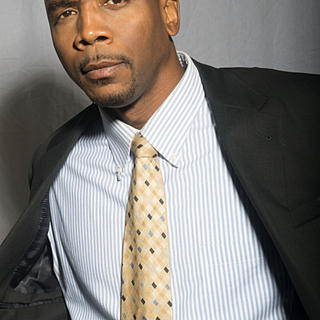Invisible Man's Lessons on Race Still Prevalent Today
- Terence V. Steele
- Apr 19, 2018
- 4 min read
Updated: Oct 18, 2020

Ralph Ellison's "Invisible Man" was first published in 1952 and, surprisingly, the book's take on being black in America is still very much prevalent today. I haven't read the book in years, but I'll never forget the story and how I could relate to it so easily. As I've gotten older, I've realized that the book was really a story about the black experience in America; most notably, the experience of being a black man. The main character, the narrator, remains unnamed throughout; just another 'invisible' black man navigating through life. The story starts with him describing his present condition: an underground room wired with hundreds of electric lights, operated by power stolen from the city's electric grid. From there, the narrator goes into his story and how he got to where he is.
It's interesting the way the story starts because it has him in a downtrodden position, yet still surviving. This is certainly a key element and relates to the black condition today and throughout American history: downtrodden, yet still surviving. And not just surviving, but doing so with ingenuity and creativity. As the saying goes, "where there's a will, there's a way". It's been like this throughout American history, racism has always tried to destroy black people, their confidence, and their hopes; and every time, black people respond by finding other means of survival.
Once we get into the story of "Invisible Man", we discover that the narrator graduates from high school in a small Southern town and receives a scholarship to an all black college. However, to receive it, he must first take part in a brutal, humiliating battle royal for the entertainment of the town's rich white dignitaries. Although, we don't experience this type of racism today, blacks still have to compete in the the "battle royal" of corporate America and job competition. Affirmative Action was supposed to help blacks receive jobs, but instead, it's been used more as a method to limit the number of African-Americans in the work place. Nevertheless, the narrator wins the battle royal and is accepted into college with the scholarship.
Upon being accepted into college, everything seems to be going well for the young narrator; until one day he has to chauffeur Mr. Norton, a visiting rich white trustee, out among the old slave-quarters beyond the campus. By chance, he stops at the cabin of Jim Trueblood, who has caused a scandal by impregnating both his wife and his daughter in his sleep. Trueblood's account horrifies Mr. Norton so badly that he asks the narrator to find him a drink. The narrator drives him to a bar filled with prostitutes and patients from a nearby mental hospital. Dr. Bledsoe, the college president, excoriates the narrator for showing Mr. Norton the underside of black life beyond the campus and expels him. However, Bledsoe gives several sealed letters of recommendation to the narrator, to be delivered to friends of the college in order to assist him in finding a job so that he may eventually re-enroll. The narrator travels to New York and distributes his letters, with no success; the son of one recipient shows him the letter, which reveals Bledsoe's intent to never admit the narrator as a student again.
This spell of bad luck throws the narrators life into a tail spin. I can't tell you how many black people have experienced this throughout their lives. Good, hard working people who may have had an instance of bad luck either in college or at some point in their lives that threw them of the course of success. While I'm sure this happens to whites as well, when it happens to a black person, it's much more difficult to pull yourself back up. Blacks have been given a stigma created by the media and that stigma has been pushed ever since media has existed; so the impression of being "black" has literally been rammed into our heads since the day we were born. I deal with it every day of my life and I hate it. If I don't fit the "stereotype" of what people have been taught a "black" man is, I automatically get judged and people just find me suspicious. Even though we don't want to admit it and we don't like to talk about it, we're often just as prejudice against ourselves as white people are against us. And this is because we've all been fed the same message about who "black" people are through the media all our lives.
Eventually the narrator gets involved with a group called the Brotherhood in New York, a pro-black group with intentions of cleaning up the black community. Again, things start out well for the narrator; but, as I said earlier, sometimes blacks can be more prejudice against themselves than whites. It's telling, because even though the book was written over ten years before Malcolm X's assassination; the narrator's rise and fall in the Brotherhood takes on the same feel of Malcolm X's rise and fall in the Nation of Islam. His own downfall was dictated by the same people he was trying to serve and fight for. Hopefully, I haven't completely spoiled the story for you, but it's well worth the read. It's just a story of how we go through these highs and lows in life and how, as black people, we often get grouped into the whole and discarded as individuals. It also shows how we can be our own worst enemies.
Subscribe to our YouTube Channels here:
Follow on IG @Steele_Media_Group or @TVSteele



















































Comments